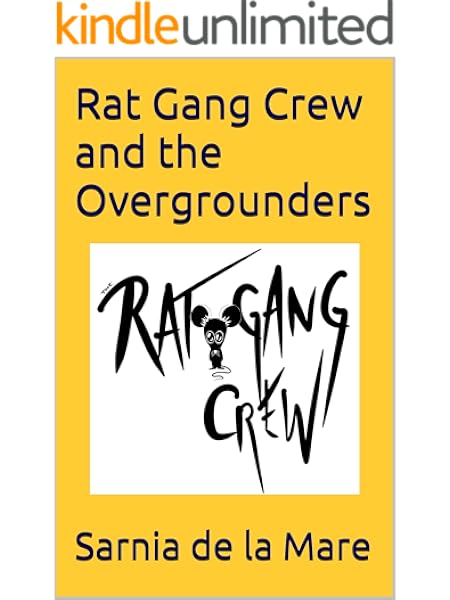Amazon is down so we have a delay publishing this great new book by David Langford
Networked Intelligence: How Smart People Build Smarter Connections in the Age of AI
Author: David Langford
Series: Know Your Subject – Concise Books Series
Genre: Business / Networking / AI / Self-Help
The new rules of success for professionals who combine technology with human trust.
In a world driven by data and algorithms, relationships are still the most valuable asset you’ll ever own. Networked Intelligence reveals how to fuse artificial intelligence with authentic human connection — to grow your influence, build stronger professional networks, and future-proof your career. Business strategist David Langford breaks down the habits, tools, and mindsets that turn smart people into “super-connectors” for the digital age.
Whether you’re a founder, freelancer, or future leader, this concise guide shows you how to let AI handle the noise so you can focus on what matters — meaningful collaboration, insight, and trust.
© 2025 David Langford.
All rights reserved.
No part of this book may be reproduced or transmitted in any form or by any means—electronic or mechanical—without written permission from the publisher, except for brief quotations in critical articles or reviews.
Published by Tale Teller Club Press
London · New York · Singapore
Cover Design & Illustrations by Tale Teller Design Studio
Printed in the United Kingdom
Acknowledgements
My gratitude to the global professionals who shared insights on resilience, empathy, and digital ethics during the writing of this book.
Special thanks to the research teams at the Uptime Institute, Chainalysis, McKinsey Digital, and the Edelman Trust Barometer for making data accessible to independent authors.
To the Tale Teller Club Press family for design and production support — and to every reader who still believes that technology can serve humanity rather than replace it.
About the Author
David Langford is a strategist, keynote speaker, and consultant on leadership, communication, and digital ethics. His work bridges behavioural science and technology, advising organisations on trust-building, AI integration, and crisis communication.
When not writing, he mentors founders and executives through the Networked Intelligence Lab, a collaborative forum exploring the human dimensions of automation.
Networked Intelligence: How Smart People Build Smarter Connections in the Age of AI
Chapter 1 — The New Currency of Connection
Chapter 2 — Algorithms vs. Empathy
Chapter 3 — Building Your Smart Network
Chapter 4 — AI Tools for Outreach, Influence & Trust
Chapter 5 — Leading in a Hybrid World
Chapter 6 — Future-Proofing Your Reputation
Chapter 7 — Failsafe Strategies When the System Goes Down
Chapter 8 — The Shadows of the Network: Illicit and Unregulated Markets
Chapter 9 — Defending Your Brand: Security, Defamation & Guilt by Association
Chapter 1 — The New Currency of Connection
Connection isn’t just nice to have anymore. In a world saturated with data, algorithms and remote touch-points, relationships have become the strategic asset that determines who thrives. Whether you’re scaling a startup, leading a team or building a personal brand, you’re no longer just managing tasks — you’re managing networks.
The Shift from “Owning” to “Connecting”
Decades ago, business advantage came from owning factories, controlling supply chains or monopolising markets. Then data and platforms rose. Today, the advantage lies in relational capital — who you know, how well you know them, and how you use that network to create value.
In practical terms:
- A founder might win a deal because an old colleague introduced them — not because their product was technically superior.
- A professional might get promoted because they’ve become the “go-to” connector inside their firm, rather than merely a top performer.
- A company might survive disruption because it has deep partnerships and networks, not just a strong product.
We can visualise this shift in three economic phases:
Era | Asset Focus | Key Skill for Individuals & Organisations |
Industrial | Physical capital (plants, machines) | Efficiency, scale |
Data/Platform | Algorithms, digital reach, analytics | Speed, insight |
Relational | Trust networks, human capital, connectivity | Influence, network design |
As you advance through these stages, you realise: the old asset classes are still relevant, but they’re no longer sufficient. Relational capital becomes the multiplier.
Why AI & Automation Make Human Connection More Valuable
It’s tempting to think: “If machines are doing more, maybe humans will matter less.” But the truth is the opposite. As machines handle more of the transactional, routine and even analytical, what remains uniquely human becomes more valuable.
Consider these recent stats:
- 78 % of organisations now use AI in at least one business function — up from 55 % just a year prior. Netguru
- In the global AI market, the projected value is rising steeply — with some sources projecting a five-fold increase in the next five years. Exploding Topics+1
- Yet a 2025 report found that only around 5 % of global companies are actually deriving “high-value benefit” from their AI investments. Business Insider
What this tells us: You can invest in AI and infrastructure, but if you neglect people and networks, you’ll be someone with advanced tools but weak relationships.
The interplay:
- AI can surface a connection, suggest an introduction, and map your network.
- But trust, influence and durable relationships still require the human ingredient: presence, consistency, emotion and reciprocity.
The Attention Economy & Why Connection Beats Visibility
You may have heard: “Visibility is everything.” In an era of LinkedIn posts, Instagram stories and algorithmic feeds, visibility is easy. But visibility is not the same as connection. In fact, visibility that lacks trust becomes noise.
A few observations:
- Professionals today are bombarded with messages, notifications and outreach attempts. The first obstacle is being seen. The second, and much harder, is being remembered.
- One well-connected executive once told me: “My inbox is full of people who follow me, not the ones who I follow up with.”
- The truly valuable networkers don’t chase feelings of “influencer reach.” They invest in what I call signal over volume.
Here’s a table illustrating difference between volume-driven and connection-driven approaches:
Approach | Metric Tracked | Typical Outcome |
Volume-Driven | Number of contacts, number of followers, likes | Many weak ties, low depth |
Connection-Driven | Number of meaningful exchanges, follow-up actions, referrals | Fewer contacts, higher value |
If you focus purely on volume, you risk having many contacts but few meaningful ones. In contrast, strategic connecting means fewer but higher-impact relationships.
Case Study – “When the Network Broke the Deal”
Company: A mid-stage SaaS startup based in Berlin (name removed for confidentiality)
Scenario: They had a great product, solid engineering team and a growing market. Yet, despite strong metrics, they failed to close their Series B funding round when a competitor swooped ahead.
What went wrong: The founder relied on cold outreach and generic investor decks. They didn’t leverage prior connections, nor had they built trust with potential investors ahead of time. Meanwhile, the competitor had spent time nurturing relationships: informal chats, shared insight reports, inviting investors to product demos, and connecting them to early customers. When it came time to decide, the investor chose someone they knew and trusted.
Outcome: The Berlin startup had to revert to a smaller bridge round, delaying product roadmap and expansion.
Lesson: The infrastructure, the code and the metrics matter — but when the time came, he who connected best, won.
Networks as Living Systems
Your network is not a static Rolodex. It’s a dynamic, organic system. Think of it as a forest: each node (contact) is a tree; each edge (relationship) is a root or branch. Some are strong hardwoods; others are saplings; some may wither if neglected.
To manage this forest you need:
- A map (who you know, how well, when last you connected).
- Regular care (reaching out, adding value, listening).
- Diversification (not all contacts from the same industry, geography or mindset).
Here are some healthy-network metrics worth tracking:
Metric | What it reveals | Healthy Target |
Dormancy rate | % of contacts you haven’t spoken to in 6+ months | < 35 % |
Reciprocity ratio | Volume of exchanges you initiate vs responses you receive | Approx. 1 : 1 |
Diversity index | Spread across industry/geography/function | 0.6+ (on a 0-1 scale) |
By turning vague “I should connect more” into measurable metrics, you convert networking into a strategic management discipline.
Why Relationships Compound Like Interest
Imagine your relationships as deposits in a bank. Every time you reach out without agenda, send a note, make an intro, you make a deposit. When you ignore people, respond late, offer no value, you risk a withdrawal or worse: a negative balance.
The magic is: compound interest works both ways. A tiny consistent action today can yield large returns tomorrow. Conversely, neglect or mis-steps can erode trust faster than you build it.
In the professional world:
- A referral from an old connection might bring you your next big client.
- A trusted network can support you during disruption: when your role changes, your industry pivots, or your company is under pressure.
- When someone chooses you, they often choose you not just for what you do, but for who you are in their network.
Anecdote – The Unexpected Introduction
A senior executive I know (let’s call him “Mark”) had moved from finance into tech. He was building his new role and felt isolated. One day at a conference he sat next to a VP from a global manufacturing firm. Without any agenda, he asked her about her biggest current challenge. They talked for 15 minutes. She later introduced him to two colleagues in Asia, one of whom became a key partner for his new firm’s expansion in that region.
What made the difference? He didn’t arrive with an ask. He arrived with curiosity. The platform (conference) made the meeting possible — but the connection came from humble presence.
The New Playbook for Professionals
Here’s a pragmatic step-by-step to begin building relational capital:
- Map your current network: list your top 50 professional contacts and record last interaction.
- Segment them into three tiers:
- Tier A: people you speak with every 4-6 weeks.
- Tier B: people you speak with every 3-6 months.
- Tier C: less active but still valuable contacts.
- Schedule micro-actions each week (e.g., send one thoughtful note, ask a question, make an introduction).
- Use tech to support you: CRM, reminders, tracking. But always add the human touch.
- Review monthly: what actions led to value? What relationships faded? Why?
- Diversify your network: aim to add one contact monthly outside your immediate industry, geography or comfort zone.
Business Example – Global Insight
A recent global study of networking in business found: 42 % of IT professionals report saving time thanks to automation tools in networking and workflow management. careers.kogod.american.edu
Yet many of those same organisations still struggle to convert those time-savings into stronger human relationships. Technology helps, but doesn’t replace the human element.
Final Thoughts
In the new economy, if you want to lead, scale or pivot, you don’t just need a product or a role. You need people.
You need connections that grow with you.
You need the network that says: “I trust you. I know you. I’ve worked with you.”
Everything else — metrics, automation, code, infrastructure — becomes far more powerful when applied through the lens of connection.
Connection is the compound interest of human capital. The earlier you invest, the longer your runway.
Network Challenge #1 – Audit Your Connections
- Export your last 20 professional interactions (email, LinkedIn messages, calls).
- For each interaction, mark: (a) whether the value-exchange was mutual, (b) whether you followed up, (c) whether the other person introduced someone or helped you in some non-transactional way.
- Identify three contacts you haven’t spoken to in 6+ months and send a genuinely curious outreach (no ask).
- Track replies for 30 days: how many responded, what the nature of the exchange was.
- Write a short reflection: What surprised you about who replied (or didn’t)? Why might that be?
Other Books by Tale Teller Club Press
Kindle Edition
Kindle Edition
Kindle Edition
Kindle Edition
Kindle Edition
Kindle Edition
Remove from view
Kindle Edition
Kindle Edition
Kindle Edition
Kindle Edition
Kindle Edition
Kindle Edition
Paperback
FREE delivery Thu 23 Oct on £10 of items dispatched by Amazon
Paperback
FREE delivery Thursday 23 Oct
Paperback
FREE delivery Thu 23 Oct on £10 of items dispatched by Amazon
Paperback
Paperback
FREE delivery Thu 23 Oct
















